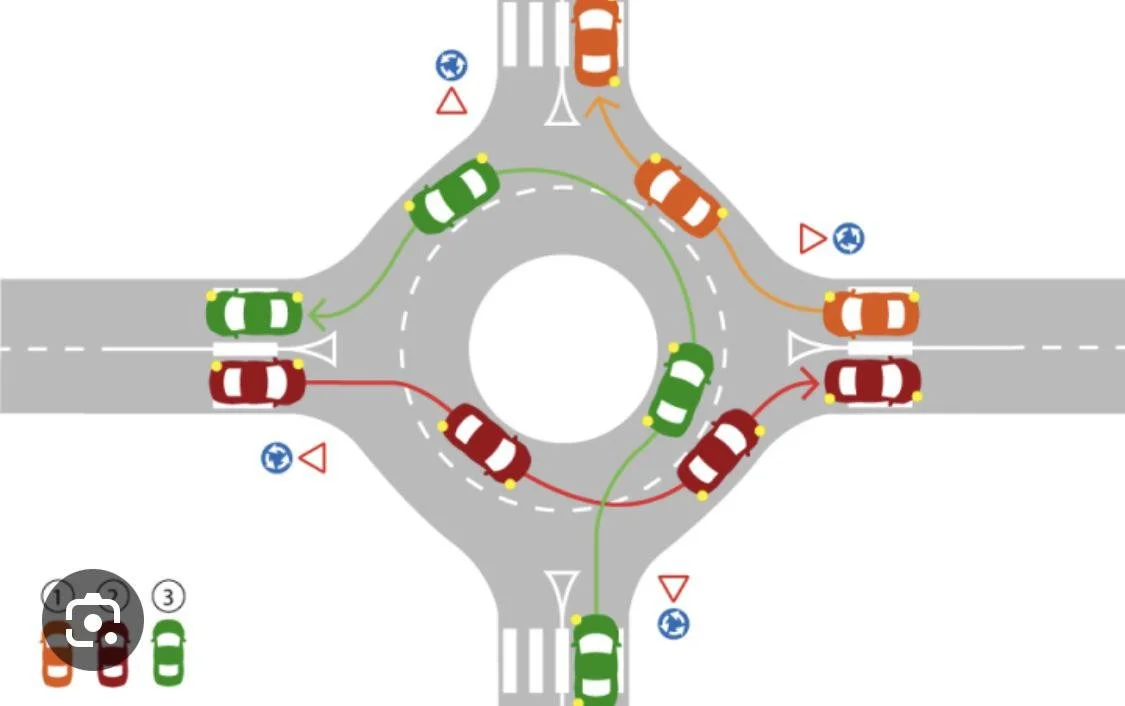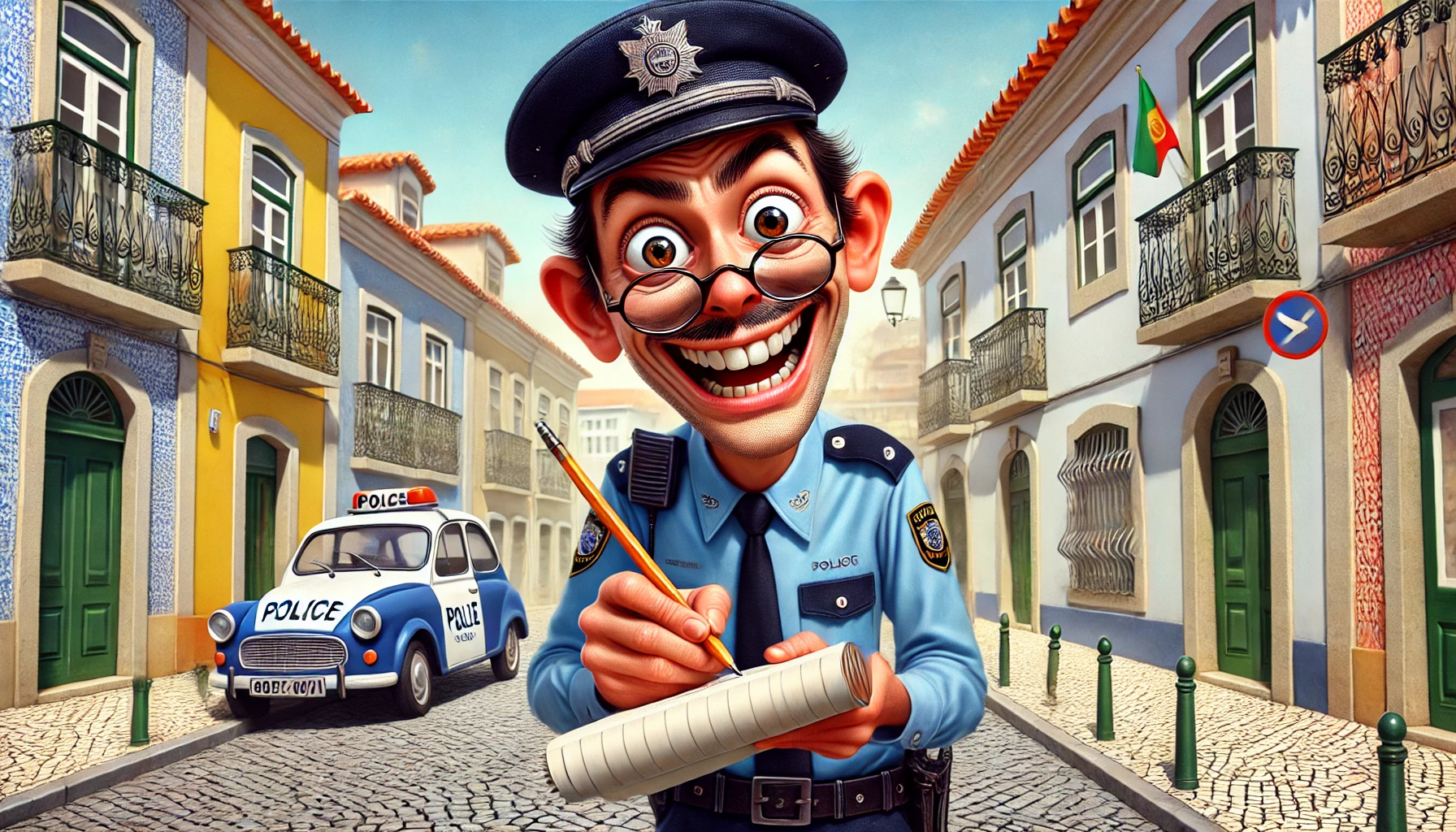Driving in Portugal can be a wonderful way to explore the country’s scenic routes and hidden gems, but it also comes with some unique rules and practices that may surprise newcomers. From specific speed limits to unexpected parking regulations, here are 9 surprising rules for driving in Portugal that every expat and visitor should know. I’m Lisbob, the expat’s assistant, here to help you navigate Portuguese roads with confidence!
Roundabouts: A Source of Confusion
Roundabouts in Portugal are notorious for causing frustration and confusion, even for seasoned drivers. The rules may seem straightforward—vehicles inside the roundabout have priority—but the reality is often far from simple. Drivers frequently enter without yielding, switch lanes unpredictably, or exit from the wrong lane, creating chaotic situations.
Adding to the challenge, some roundabouts have multiple lanes with poorly marked exits, leaving newcomers unsure of where to go. A good tip? Always stick to the outer lane if you’re planning to exit soon, and use your indicators to signal your intentions clearly. Patience is key, and understanding these nuances will save you a lot of stress. To help, we’ve included a visual guide to roundabout etiquette below.
Accidents: Always Wait for the Police
One critical rule when driving in Portugal is to always wait for the police in case of an accident, no matter how minor. Unlike in some countries where an amicable agreement is common practice, attempting to resolve an accident without police documentation can have severe consequences.
Without an official police report (auto de ocorrência), you risk being accused of fleeing the scene, which is a serious offense under Portuguese law. This could lead to fines, legal complications, or even the denial of your insurance claim. While waiting for the police may feel time-consuming, it’s the only way to protect yourself legally and ensure an accurate record of events.
Always Carry Your Documents
In Portugal, drivers are required to carry specific documents at all times, including a valid driver’s license, vehicle registration, proof of insurance, and identification (such as a passport for foreign drivers). Police may conduct random checks, and if you’re caught without these documents, you could face fines. Additionally, if you have a foreign license, make sure to check whether you need an International Driving Permit (IDP) or if your license needs to be exchanged after a certain period of residency.
Just a quick reminder—the first and most important step before moving to Portugal is getting your NIF, your tax identification number. Without it, you can’t work, find accommodation, or open a bank account. I can help you get your NIF remotely, in just a few days. Just click the link below!
Seat Belts Are Mandatory for Everyone
Seat belts are required for all passengers, both in the front and back seats. This rule is strictly enforced, and failing to wear a seat belt can result in hefty fines for the driver. In Portugal, road safety is taken seriously, and police regularly check for compliance with seat belt laws. Ensure that everyone in the car is buckled up before you start driving to avoid unnecessary fines and stay safe on the road.
Watch Out for Speed Cameras and Varying Speed Limits
Portugal has an extensive network of speed cameras, especially on major highways, and fines for speeding can be significant. Speed limits vary depending on the type of road: 50 km/h in urban areas, 90 km/h on secondary roads, and 120 km/h on highways. Keep an eye on road signs, as speed limits may change suddenly. Additionally, some areas have variable speed limits based on weather conditions or traffic, so it’s essential to stay alert and adjust your speed accordingly.
Be Mindful of Alcohol Limits
Portugal has strict rules regarding alcohol consumption for drivers. The legal blood alcohol limit is 0.5 g/L, and for novice drivers with less than three years of experience, it’s even lower at 0.2 g/L. Exceeding these limits can lead to severe penalties, including fines, license suspension, or even jail time. Unlike some other countries, “one drink” can be enough to put you over the limit, so it’s best to avoid drinking entirely if you’re planning to drive.
9 Surprising Rules for Driving in Portugal
Use the Right Side of the Road and Left Lane Only for Overtaking
In Portugal, drivers use the right side of the road, and the left lane on highways is strictly for overtaking. Staying in the left lane when you’re not overtaking is not only discouraged but can also result in fines. Portuguese drivers expect slower vehicles to stay to the right, so make sure to move back after overtaking to keep traffic flowing smoothly. This rule helps reduce congestion and enhances safety on the highways.
Parking Rules: Look for Color Codes
Parking in Portugal can be confusing, as spaces are often color-coded. White zones are free to park, blue zones are metered (usually with a nearby parking meter), and yellow or red zones indicate no parking. Additionally, parking is not allowed within 5 meters of intersections or on sidewalks, and violators risk fines or even towing. It’s important to pay attention to these colors and any signage nearby, as parking rules can vary by city and neighborhood.
Tolls Are Electronic on Many Highways
Portugal’s highway toll system can be confusing, as many tolls are electronic and don’t have manual payment booths. On these highways, cameras capture your license plate, and the toll fees are either charged directly to a linked device or billed later. For foreign-registered vehicles, you can buy a temporary electronic toll device at the border or use the Easytoll system to link a credit card to your license plate. It’s essential to be aware of this system to avoid unexpected fines, as ignoring tolls can result in hefty penalties.
Thanks for joining me! I hope these tips help you feel prepared and confident driving in Portugal. If you enjoyed this article, don’t forget to like and share for more insights on expat life in Portugal. See you soon!













